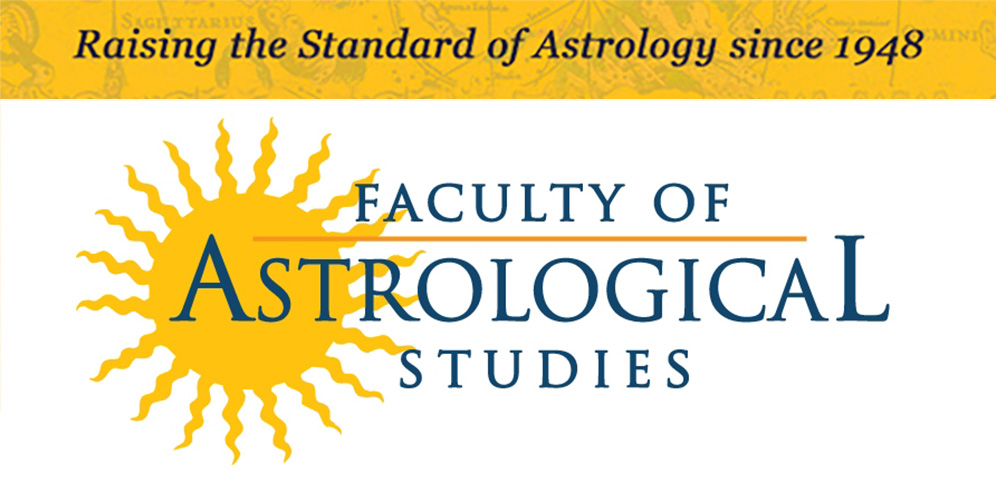What is Astrology?
One of the biggest revelations for me so far has come from reading Priscilla Costello’s book, Shakespeare and the Stars. The Shakespearean canon is peppered with astrological references, some of which I knew, but Dr. Costello reveals themes in seven of the plays that correspond to the planets of the ancient world.
I’ve been an actor for 35 years and performed in a dozen Shakespearean productions, but neither I, nor any of the actors, directors or producers in my acquaintance had this obvious-once-you-know information. Nor were we aware that when Sir Toby and Sir Andrew discuss astrology in Act One, Scene Three of Twelfth Night, they are getting it wrong. The scene was written to amuse the audience as an example of confident, drunken ignorance. How did I miss all that and the many hundreds of direct references in the plays, I wonder? All that astrological lore hiding in plain sight.
It is 402 years since Shakespeare died – and by the way, on the 3rd of April 1594 Pluto was exactly conjunct Shakespeare’s natal Mercury at 16 degrees Aries, and his Saturn return was exact the previous July. 1594 was the year Titus Andronicus, by far his most violent play, the only one which includes rape and cannibalism, was first performed. For most of the 1590s, the decade of Shakespeare’s greatest productivity, the outer planets were in in fire signs, and Shakespeare seems to have responded to them, as did the age in general being one of passion, courage, display and exploration. All this albeit the planets beyond Saturn were unknown at the time. – And now with astrological websites abounding, is serious interest in astrology on the rise once more after centuries of academic dismissal?
It seems to me that the episode related by Liz Greene in The Astrology of Fate, of her whole encounter with, and mysterious rejection by, Isobel Hickey, whether this was conscious intention on Ms. Hickey’s part or not, has spurred the development of psychological astrology in a way that would not have happened otherwise. One wonders what Ms. Hickey saw in the potentials of the time.
But astrology is more than psychology; it blends mythology with science. It is the meeting of arithmetic and intuition; of symbol and story telling. Divination, prediction and destiny come within its applications, but its more potent personal effects can be insight, enlightenment and empowerment.
Astrological thinking says the discovery of a new planet is reflected by a change in human awareness. What does it mean then, when our understanding of the body of the solar system now confronts what there may be beyond the orbit of Pluto?
I once played the great Danish physicist, Neils Bohr. To prepare I tried to read Quantum Physics for Dummies. It was hopeless, even the introduction was beyond me. So in performance, I faked it. But I did come away understanding that a particle can also be a field. Did C S Lewis apprehend this in his science fiction trilogy in the phrase “…the fields of of Arbol”? More likely that Kurt Vonnegut Jr. understood the puzzle as witnessed in his book Sirens of Titan.
And what if a particle is planet sized, and how about, as Steven Forrest puts it, pointing out that sub-atomic particles have frequency in their cycles and what, he asks, if a particle has only three cycles per century, as in the planet Saturn? Astrology shows us physics, quantum physics and metaphysics.
Rob Hand, in Horoscope Symbols, takes up where Rodney Collin Smith, in The Theory of Celestial Influence, left off, and posits the that orbital function of each of the planets is akin to a transformer stepping down the voltage of cosmic energy. Our partial view and stepped-down experience applies in every way. We represent three dimensional constructs of great circles on two dimensional paper, and we apply three dimensional thinking, perception and analysis to a fourth dimensional body that is the total of a human life. The fourth dimensional body of the solar system, if one could apprehend it, would make divination easy and it would look more like literacy and less like magic.
That astrology works is obvious to mutable types like me. That it doesn’t is equally obvious to certain fixed types I have encountered. Astrology is nothing if not a perspective-based view. Humanity is terra-centric in outlook, but a square with Venus on Earth, may be a sextile on Mars, and who knows what it looks like from Sedna, or from 90 degrees perpendicular to the plane of the ecliptic on the outer edges of the Oort cloud (if it exists)?
A book I have found especially interesting is The Yugas by David Steinmetz and Joseph Selbie. It deals with the 24,000 year cycle of the precession of the equinoxes. This, along with the very plausible hypothesis that our Sun is part of a binary system with Sirius, and therefore in a pattern of orbital repeat, carries some fascinating implications. Best of all, in these very troubled times, is the assertion that we are in the early stages of a large ascending cycle, (One hopes). The astrology is Vedic, derived from the work of Sri Yukteshwar and the authors are followers of Yogananda.
Whether enlightenment is on the way for us all or not, just at the moment in present times we see the casual dismissal of the Art Astrological in popular culture by celebrity scientists. This dismissal, it seems to me, is like saying, “If I don’t understand it, it must be nonsense.” A close cousin to, “If I don’t see it, it doesn’t exist.” A view not unlike that of that of 15th century Europeans who could not imagine America.
And how about those who are religiously offended? I received a letter a few months ago telling me that I would surely burn in hell for all eternity because I practice as an astrologer. I was surprised that in a cosmopolitan city like New York such psychosis still exists – naive on my part, there is an abundance of extreme doctrine everywhere. The letter was more amusing than alarming, and yet there are plenty of people in the world who would commit violence, and have throughout history, and perhaps will again, against practitioners of the Art, often in the name of some or other deity, and as we know, ironically, under planetary influence.
And the practice and the understanding of astrology is broad with multiple approaches, and, as far as I can tell, plenty of factional disagreement. A psychological decoding system, a map of fate, a life-coach, a hybrid of astronomy and myth, an occulted domain yielding guidance in the financial markets, in military adventures, in political maneuvers, a mystical gateway (who needs hallucinogens when you can get this?), a love-match manual; perhaps close definition of what astrology is, and what use it can be in our human concerns will continue to elude. Clearly it is all of these things and none of them too, in that it takes us to the edge of what a human mind can cope with. The planets and the stars will continue in their courses whether or not humanity acknowledges them, notices them or understands them. And while the confusion known as being alive continues, sun-sign columns in newspapers will continue to tell us if it’s a good day to go shopping.
Being an actor, I was often mildly annoyed when certain esotericists would proclaim that the substance of our existence is analogous to the illusion that is a play in a theatre. Another insight from Quantum theory is that the act of observation changes the conditions and the outcome – well any actor could tell you that – we all know the difference an audience makes.
But the theatrical metaphor holds. We get a costume for incarnation, expressed symbolically in the potentials of the birth chart. We get an incomplete script outline, more like the treatment for a film where a brief summary of each unit of the story is given. This is expressed by the transits and progressions of our lives. We get the role but we’re not told how to play it. This is the interface between pre-destiny and free-will. Within limits we can improvise quite a bit.
As so often, Shakespeare puts it well:
When I consider everything that grows
Holds in perfection but a little moment,
That this huge stage presenteth nought but shows
Whereon the stars in secret influence comment…
 Colin McPhillamy is an actor and blogs about it at mcphillamy.com. After decades of casual but persistent interest in tarot cards and the planets and the stars, Colin began to study seriously a few years ago. He has completed Module 3 and is reading far too many books on astrology quasi-simultaneously.
Colin McPhillamy is an actor and blogs about it at mcphillamy.com. After decades of casual but persistent interest in tarot cards and the planets and the stars, Colin began to study seriously a few years ago. He has completed Module 3 and is reading far too many books on astrology quasi-simultaneously.

